decamethonium
- CAS NO.:156-74-1
- Molecular Weight: 0
- MDL number: MFCD00242874
- SAFETY DATA SHEET (SDS)
- Update Date: 2023-05-04 17:34:34

What is decamethonium?
Absorption
Rapidly absorbed.
Toxicity
LD50=190 mg/kg (orally in mice). Prolonged apnoea, neuromuscular paralysis and cardiac arrest may occur.
Background
Decamethonium is used in anesthesia to cause paralysis. It is a short acting depolarizing muscle relaxant. It is similar to acetylcholine and acts as a partial agonist of the nicotinic acetylcholine receptor.
Indications
For use as a skeletal muscle relaxant
Definition
ChEBI: Decamethonium is a quaternary ammonium ion that is a depolarising muscle relaxant whose structure comprises a decane-1,10-diamine core in which each amino group carries three methyl substituents. It has a role as a muscle relaxant and a nicotinic acetylcholine receptor agonist. It derives from a hydride of a decane.
brand name
Syncurine (GlaxoSmithKline).
Pharmacokinetics
Decamethonium acts as a depolarizing muscle relaxant or neuromuscular blocking agent. It acts as an agonist of nicotinic acetycholine receptors in the motor endplate and causes depolarization. This class of drugs has its effect at the neuromuscular junction by preventing the effects of acetylcholine. Normally, when a nerve stimulus acts to contract a muscle, it releases acetylcholine. The binding of this acetylcholine to receptors causes the muscle to contract. Muscle relaxants play an important role in anesthesia even though they don't provide any pain relief or produce unconsciousness.
Metabolism
Not Available
Safety information for decamethonium
New Products
4-Fluorophenylacetic acid 4-Methylphenylacetic acid N-Boc-D-alaninol N-BOC-D/L-ALANINOL Tert-butyl bis(2-chloroethyl)carbamate 3-Morpholino-1-(4-nitrophenyl)-5,6-dihydropyridin- 2(1H)-one Furan-2,5-Dicarboxylic Acid Tropic acid S-2-CHLORO PROPIONIC ACID ETHYL ISOCYANOACETATE 2-Bromo-1,3-Bis(Dimethylamino)Trimethinium Hexafluorophosphate (6-METHYL-[1,3]DITHIOLO[4,5-b]QUINOXALIN-2-ONE INDAZOLE-3-CARBOXYLIC ACID 4-IODO BENZOIC ACID (2-Hydroxyphenyl)acetonitrile 4-Bromopyrazole 5,6-Dimethoxyindanone 2-(Cyanocyclohexyl)acetic acid 4-methoxy-3,5-dinitropyridine 2-aminopropyl benzoate hydrochloride 1-(4-(aminomethyl)benzyl)urea hydrochloride diethyl 2-(2-((tertbutoxycarbonyl)amino) ethyl)malonate tert-butyl 4- (ureidomethyl)benzylcarbamate Ethyl-2-chloro((4-methoxyphenyl)hydrazono)acetateRelated products of tetrahydrofuran

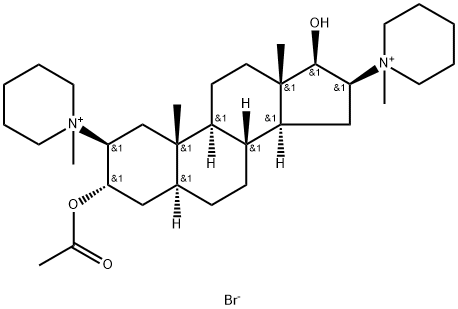

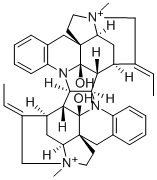
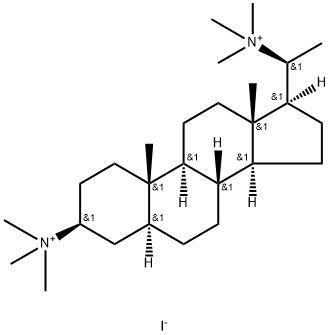

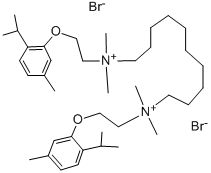
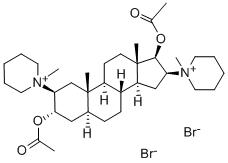
You may like
-
 2033-24-1 98%View Details
2033-24-1 98%View Details
2033-24-1 -
 42831-50-5 5-METHYLISOXAZOLE-4-CARBOXYLIC ACID 98%View Details
42831-50-5 5-METHYLISOXAZOLE-4-CARBOXYLIC ACID 98%View Details
42831-50-5 -
 1975-50-4 98%View Details
1975-50-4 98%View Details
1975-50-4 -
 2-HYDROXY BENZYL ALCOHOL 98%View Details
2-HYDROXY BENZYL ALCOHOL 98%View Details
90-01-7 -
 2-Chloro-1,3-Bis(Dimethylamino)Trimethinium Hexafluorophosphate 221615-75-4 98%View Details
2-Chloro-1,3-Bis(Dimethylamino)Trimethinium Hexafluorophosphate 221615-75-4 98%View Details
221615-75-4 -
 61397-56-6 CIS BROMO BENZOATE 98%View Details
61397-56-6 CIS BROMO BENZOATE 98%View Details
61397-56-6 -
 14714-50-2 (2-Hydroxyphenyl)acetonitrile 98+View Details
14714-50-2 (2-Hydroxyphenyl)acetonitrile 98+View Details
14714-50-2 -
 118753-70-1 98+View Details
118753-70-1 98+View Details
118753-70-1